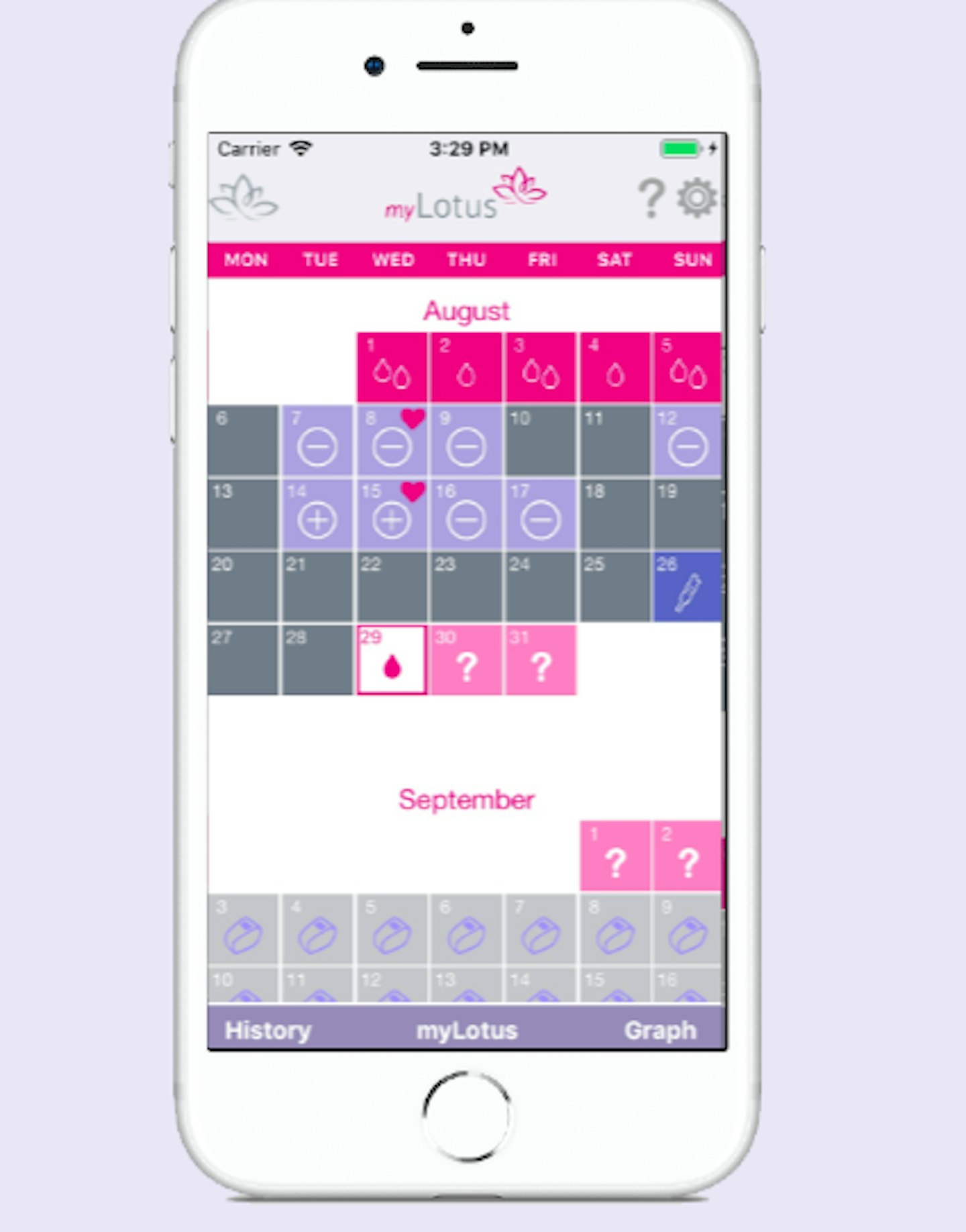Emma Cannon, a fertility and women’s health expert, explores stress and infertility, and the ways to combat concerns and anxieties into a fertile mindset.
For many making a baby is fun and straightforward, for others fertility can be an immeasurably stressful experience.
You could be preparing for your first child, or suddenly faced with fertility challenges. You may be experiencing secondary infertility or at the point where you are consideringIVF treatment; this can be anxiety-inducing and overwhelming.
Here are some of the factors that may impact on your wellbeing, finding ways to limit your stress levels and finding resources to help you cope is an important part of any fertility journey.
In the article:
:aInfertility: the facts{href='' }

Infertility is defined as the inability of a couple to get pregnant despite having regular unprotected sex over a period of two years.
Shockingly, it is estimated that one in seven UK couples has difficulty conceiving.
About 40 per cent of infertilityis due to male factor, 40 per cent due to the female factor, and 20 per cent from complications affecting both partners.
In women under 40, more than eight out of 10 couples will conceivewithin one year if they are having regular intercourse, and nine out of 10 will be pregnant within two years.
Eighty-two to 92 per cent of couples will conceive within 12 menstrual cycles and 90 to 98 per cent will conceive within 24 menstrual cycles.
The challenges and hurdles that many couples face on the road to becoming parents can all to often go unspoken. Often they are not outwardly ill, yet there is still suffering.
Getting to know your body and your responses to different emotions, particularly stress, may go some way to ensuring a smoother fertility journey and a more relaxed experience.

Actually, stress in moderate amounts can improve our performance and keeps us focused on a goal. However, when this is sustained over a period of time our bodies adopt a ‘fight or flight” response, which prompts the adrenal glands to secrete cortisol (stress hormone) and adrenaline into the bloodstream.
Increasingly people are running insanely busy lives and trying to juggle too much and it can lead to burnout and yes inability to conceive.
The opposite response of the nervous system is ‘feed or breed’ or ‘rest or digest’; this response tells the body that all is well and it is an optimal time to conceive. It tells the body that it is safe.

It is likely that we have a coping mechanism that, when the body is under stress or in danger, fertility is temporarily suspended. Of course, most people are not in immediate danger of being savaged by a tiger.
Nevertheless, they are under stress in terms of their nervous and immune systems (and often their digestive systems). In short, their systems are fighting constantly and it’s a strain.
When we feel safe we release brain chemicals in a way that sends messages to the body that we are safe and that it is an optimal time to conceive.
I have heard this argument countered by IVF units who tell women that it does not matter what they do nothing interferes with what they are doing.
In fact, they often quote that women in war zones can conceive so clearly stress has no impact. I would argue that trauma and stress are two very different mechanisms and there is some evidence that actually in trauma our fertility may actually be temporarily increased to ensure the survival of the species.
This is very different from the chronic stress we see in a clinicwhich we already know reduces libido, sexual function, and potentially ovulation.
Make no mistake about it; struggling to conceive is very stressful, misunderstood and under-supported.
Infertility is a big deal! Most people wrongly assume that because there is often no illness, as such, that there is no suffering.
Infertile couples often suffer in silence as they battle alone in an area of medicine that is increasingly underfunded.
The issues are many and varied; here are the top 10:
1) Lack of information

Many couples and individuals struggle to get good clear information regarding their fertility issues.
Services vary depending on where you live and it is often potluck as to how good the advice you receive is.
Many areas now do not fund IVF at all leaving patients to fend for them self leading into money stress. Treatments are costly and multiple treatments maybe needed with no guarantee of success.
2) Too much information

Conflicting information is everywhere. Doctor Google is one of the main problems and conflicting information creates fear.
Fear is everywhere; it is in the papers, in the chat rooms and fear begets fear. Too much information can overwhelm patients and add to their stress.
3) Not knowing your most fertile days

Pinpointing your fertile window is difficult for many women trying to conceive, especially those with irregular and unpredictable cycles.
Being able to understand your menstrual cycleand particularly your ovulation hormone LH profile, which is key to getting pregnant, is important to optimise your chances of conception.
For example, a new wave of femtech products are giving women a level of at-home, personalized insight that was non-existent before.
Monitors like myLotus, can now, for the first time, help women accurately detect and measure their personal LH levels at home.
Traditional over the counter methods may actually increase stress and reduce sex, as they are based on a threshold based on the “average” woman´s hormone levels, which cannot be used by 50% of women to pinpoint ovulation.
Women, who have a low or high LH baseline might constantly see only a negative or a positive result. Many couples report an increase in stress around sex with the introduction of ovulation sticks and sex on demand.
Using a personalised monitoring helps you get a complete picture of your menstrual cycle. Incredibly, though only being launched at the end of 2018, I understand that myLotus are beginning to see the first wave of pregnancies for their users – a vote of confidence if I do say so.
4) Passing of time

Because fertility declines with age the passing of time adds an additional pressure. Time is eroded very quickly and it can feel that with every passing day the situation is getting worse.
5) Lack of emotional support

The true suffering experienced by couples or individuals who cannot conceive is huge. Many suffer pregnancy loss, IVF failure, crippling gynecological conditions, baby loss or months of trying without success.
There is little support available and most patients report feeling misunderstood, isolated or unsupported.
6) Relationship stress

The stress that infertility puts on couples is immense. It can completely change the dynamic of the relationship.
Grueling IVF treatment, timed sex, poor semen results, hormonal injections, steroids; can all impact on even the strongest partnership.
7) Family stress

It can be very isolating and although families often want to support, they can struggle to know what to do for the best.
This can be painful to put an additional strain on the couple or individual who may feel misunderstood.
8) Social stress

Having to constantly be happy for others' joyful news can cause immense pain and feelings of failure.
This is often followed by feelings of shame that they are not able to feel happy for their friend, colleague or relative.
It can be particularly difficult to hear the ‘oh we only did it once’ news. Isolating themselves from their social groups and their friends and family is common.
9) Work pressure

Infertility can mean having to take time off work for appointments and treatments. If treatment is prolonged this can put a strain on working women who have to decide if they tell their employees about their infertility or not.
Either way, it can cause stress and anxiety. Women often get trapped in jobs that they are not happy in because they feel forced to stay due to their fertility struggles.
Or they are holding out for maternity pay. This can mean that their career stagnates and they become increasingly unhappy in a situation that does not serve them.
Moving up the career ladder, while going for treatment is often impossible for most women.
10) Putting life on hold

Infertility often consumes all areas of life; holidays are put on hold, major life events go past uncelebrated, home moves are delayed, as the focus on fertility dominates everything.
My experience in supporting couples and individuals over the past 23 years is that they do better when they are well supported and their options are clear. Many women are in fear.
This fear comes from multiple places; what I do is try to move women away from fear and show them that they have resources; inner and outer. I believe that feeling safe and supported creates the optimal conditions for conception to take place.

The likelihood of natural conception is reduced when stress levels are high. A recent American studyof 501 couples over 12 months found a 29 per cent reduction in fertility and a two-fold increase in the risk of infertility in couples demonstrating high levels of stress.
In those undergoing IVF treatment, fewer oocytes were collected from women who had experienced stressful life events in the 12 months prior to retrieval.
Timing IVF treatment when stress levels are minimal is therefore advisable. Patients obsessed with their infertility tend to be less happy, engage less socially and have reduced libido and the longer it takes couples to conceive the higher their levels of stress rise.
Although lowering stress levels may benefit couples trying to conceive and teaching patients that managing their emotions is beneficial to health and fertility is an important aspect of the acupuncturist’s role, realistic advice on stress reduction(such as throughexercise or meditation) is important.
This involves entirely individual negotiations between practitioners and patients as to what is achievable.
Any such advice should be weighed up against the stress it may introduce into a relationship.

Acupuncture treatment is very useful to help couples manage stress. Overwork is a growing problem in society and will likely continue to impact both male and female health and fertility.
The effects of overwork on fertility are not well covered by current research, although for the practitioner of Chinese medicine the depleting impact of overwork on qi, Kidney yin, blood, and jing-essence is obvious.
That said, sleep deprivation and shift work have been found to clearly impact on female fertility.

A part of my role is to help women through the difficult and often all-consuming emotions they can experience while trying to conceive or going through fertility treatment.
Women are increasingly aware that their emotions may impact on their fertility. Sometimes they will say to me things like: ‘I’m stressed that I am stressed, because I know it’s bad for fertility!’
They are often caught in a vicious cycle of trying to relax yet feeling incredibly stressed and out of control. Not only is struggling to conceive an emotional rollercoaster, but it is subject to many external stressors that often add to the problem.
My approach to fertility is to create bespoke holistic and integrated programs of care for couples supported by the 90 days FERTILE program.
No two situations are the same and it is vital to look at the individual circumstances in order to create a journey that is appropriate for the couple or individual.
Knowing what options are available either medical or holistic can bring relief to the stress. Having a plan and a strategy can make all the difference.

My preferred way for women to monitor their cycles at home is myLotus.
This gives patients accurate information regarding their LH levels, alongside pinpointing their ovulation. The 90 Days Fertile is a digital program designed to support the fertility journey and to support you emotionally at whatever stage of trying you are at.
Meet the expert: Emma Cannon is a fertility and women’s health expert, registered acupuncturist, author, founder of the Emma Cannon Clinic, and a mentor and speaker. Emma specialises in acupuncture, diet and nutrition advice, diagnostic testing for fertility issues, and support throughout assisted fertility treatment.
Make sure you're following Mother & Baby on Instagramfor relatable memes, inspiring stories and parenting hacks!
Subscribe to Mother&Baby magazine for expert tips, must-have products and invaluable advice for mums, delivered straight to your door.
Whether you’re planning your new baby essentials shopping list, giving friends and family gift ideas, or planning for your baby shower, the Amazon Baby Wish List allows you to keep track of all your shopping ideas in one place.Click here to start yours today!
